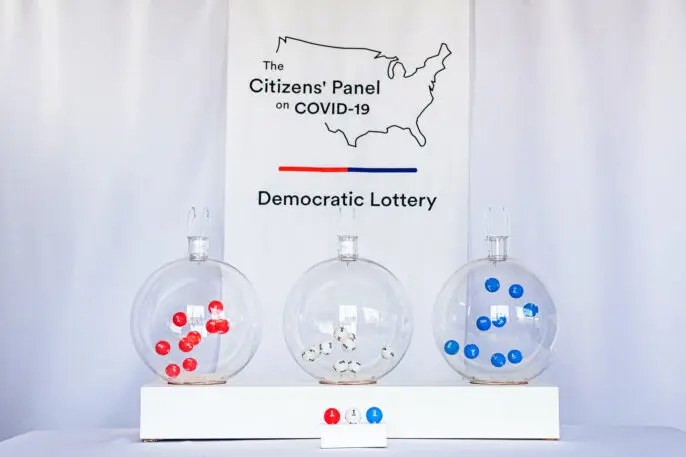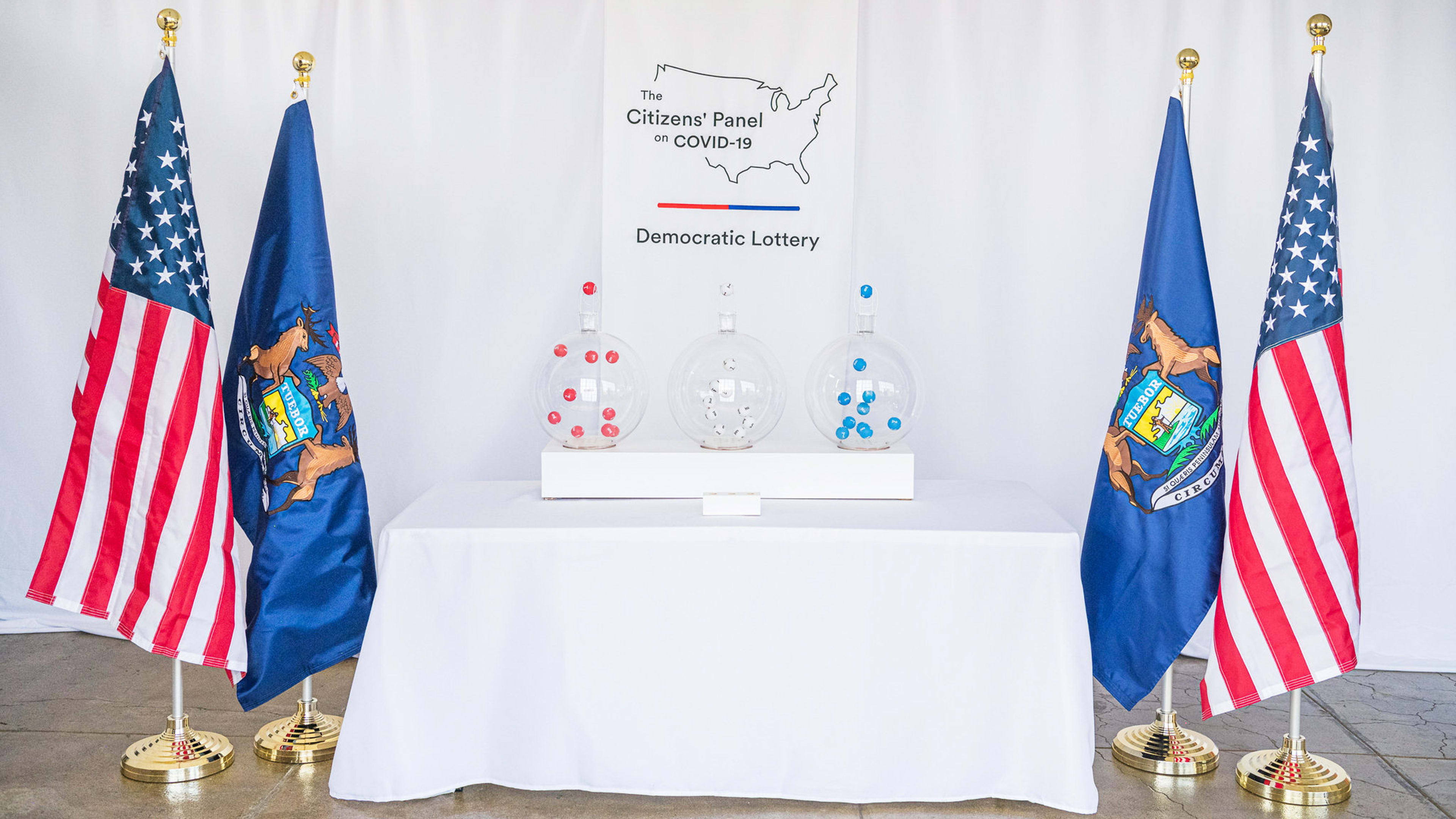Millions of homes in Texas lost power for days in February as a rare winter storm drove temperatures below zero. People struggled to warm up and light their stoves, and many lined up at public spigots and even boiled snow to procure safe drinking water. Dozens may have died. Meanwhile, Senator Ted Cruz left the state for a Ritz-Carlton stay in Cancún. It was yet another sign that elected leaders are often completely out of touch with the people they represent.
For one group, the answer to this leadership failure is clear: Scrap elections and replace them with democratic lotteries. In place of elected officials would be, as the ancient Greeks envisioned, Ho Boulomenous, or “anyone who wishes.”

“The goal is to free America from politicians, parties, and all the B.S.,” says Adam Cronkright, Of By For’s co-coordinator, “and give us a government that actually works, and that does right by us as a people.”

That lottery was a success. Their chosen panelists were demographically representative, gender-balanced, aged 20 to 87, and had wide variations in race, education, and political views. The panel emerged with 12 policy recommendations on handling COVID-19 and the economy, including on mask mandates, unemployment benefits, and home relief grants.

While things could get politically heated at times, Cronkright says the participants stayed respectful and listened to each other. “This was in Michigan, on COVID, so, this is the most charged issue in the most divided state,” he says, referring to the conflicts over COVID-19 restrictions that led to armed protests at the statehouse and a foiled plot to kidnap the governor. He believes it’s a recipe for quashing divisiveness and even keep extremist views from stirring up. “That’s what you tend to see when you cut out the pundits and the politicians,” he says, “and it’s just people directly engaging with other people.”
Recognize your brand’s excellence by applying to this year’s Brands That Matter Awards before the early-rate deadline, May 3.
